Winter Olympics review: From politics and human rights to doping and Covid, Beijing Games leaves a sour taste
Despite the magic of Team GB’s curlers and some special moments of sporting achievement, the Beijing Games have been a headache for Olympic organisers

When snow, fake or otherwise, melts, you get slush but it’s unlikely many will be feeling too slushy about these Olympics.
For those who made debuts, delivered personal bests or cracked the podium, these weeks in frigid Beijing will warm their hearts for years to come.
Eve Muirhead and Bruce Mouat are curlers, not diplomats, and had no choice about the stage on which they were told to “hurry hard” on. But for the wider watching world, and many inside the five-ringed circus, the page can’t be turned quickly enough.
Despite warm words at a colourful closing ceremony, the International Olympic Committee (IOC) has long been a gold medallist in saying one thing in public and another in private.
A second pandemic Games in six months, especially in “Covid Zero” China where Hazmat suits outnumbered tracksuits, was far from ideal and precisely the reason why the IOC changed the winter Games frequency in 1994. However, off-field issues loomed large, providing a stubborn sub-plot to all the sporting excellence.
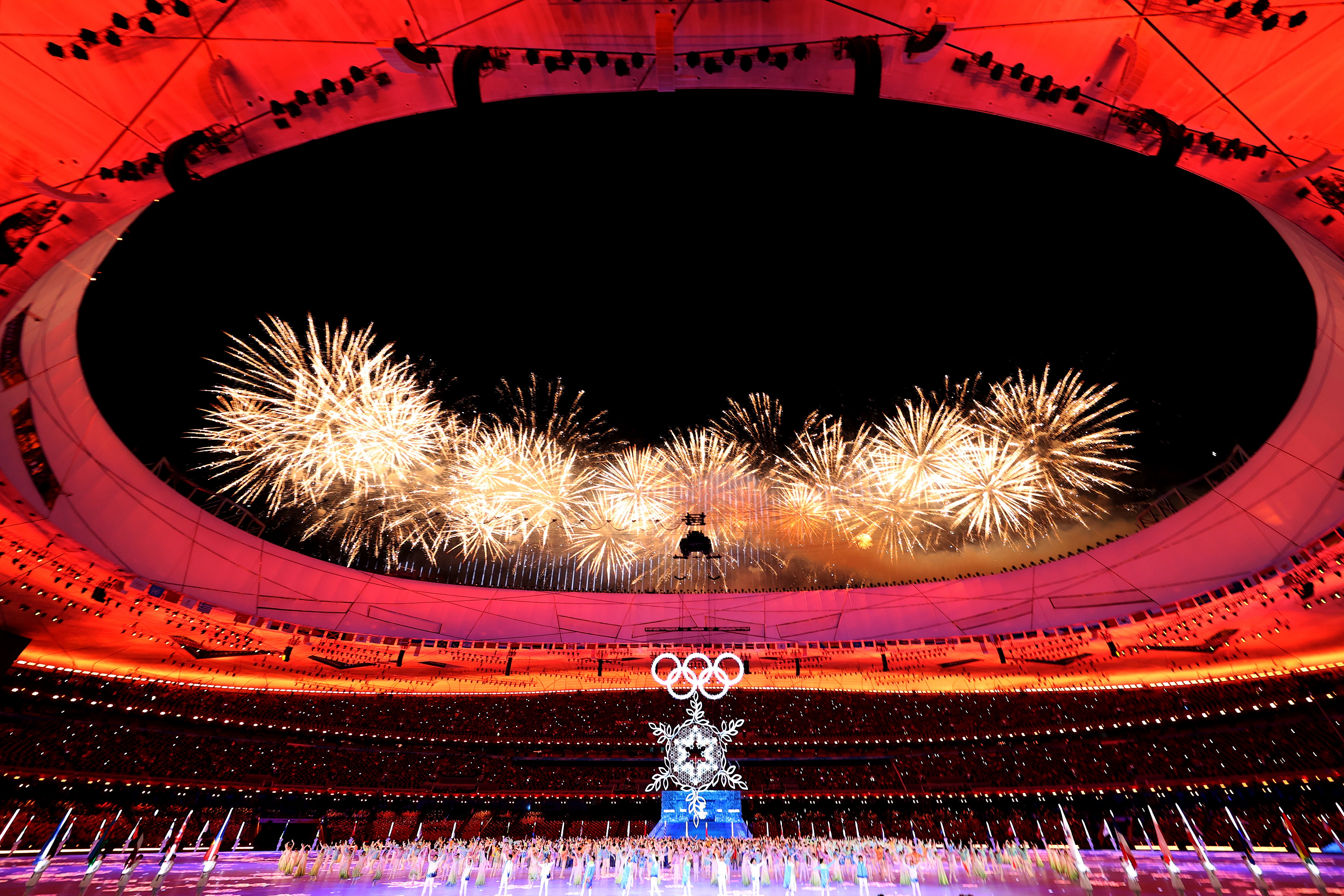
China’s abuses of press freedoms, human rights and the genocide of the Uyghur population in the northwestern region of Xinjiang will forever frame this fortnight. The IOC insisted the Games should not be “political” while allowing the host nation to make the most political of statements, with Uyghur cross-country skier Dinigeer Yilamujiang lighting the flame at the opening ceremony. We’d have loved to ask her thoughts, but we weren’t allowed.
Once, while sharing a stage with an organising committee spokesperson, a former member of the Chinese delegation to the UN General Assembly brazenly insisted talk of genocide, long confirmed by a panel of UN experts, was “all media lies”.
Games sponsors don’t pay £2.15bn every four years to keep quiet about their investment. Yet many did here, and in the Olympic movement, it’s always the money that talks the loudest.
There is no doubt the IOC is feeling a little happier looking at the hosts in the decade ahead – Paris, Milan, Los Angeles, a likely wintery return to North America in 2030 and Brisbane in 2032.
Games are often viewed through the lens of their leading ladies, from Cathy Freeman running with a nation on her back in Sydney to Nadia Comaneci’s perfect tens in Montreal. These Olympics will be remembered as “Valieva’s Games”, after the 15-year-old Russian figure skater Kamila Valieva, who didn’t even medal in the individual competition.
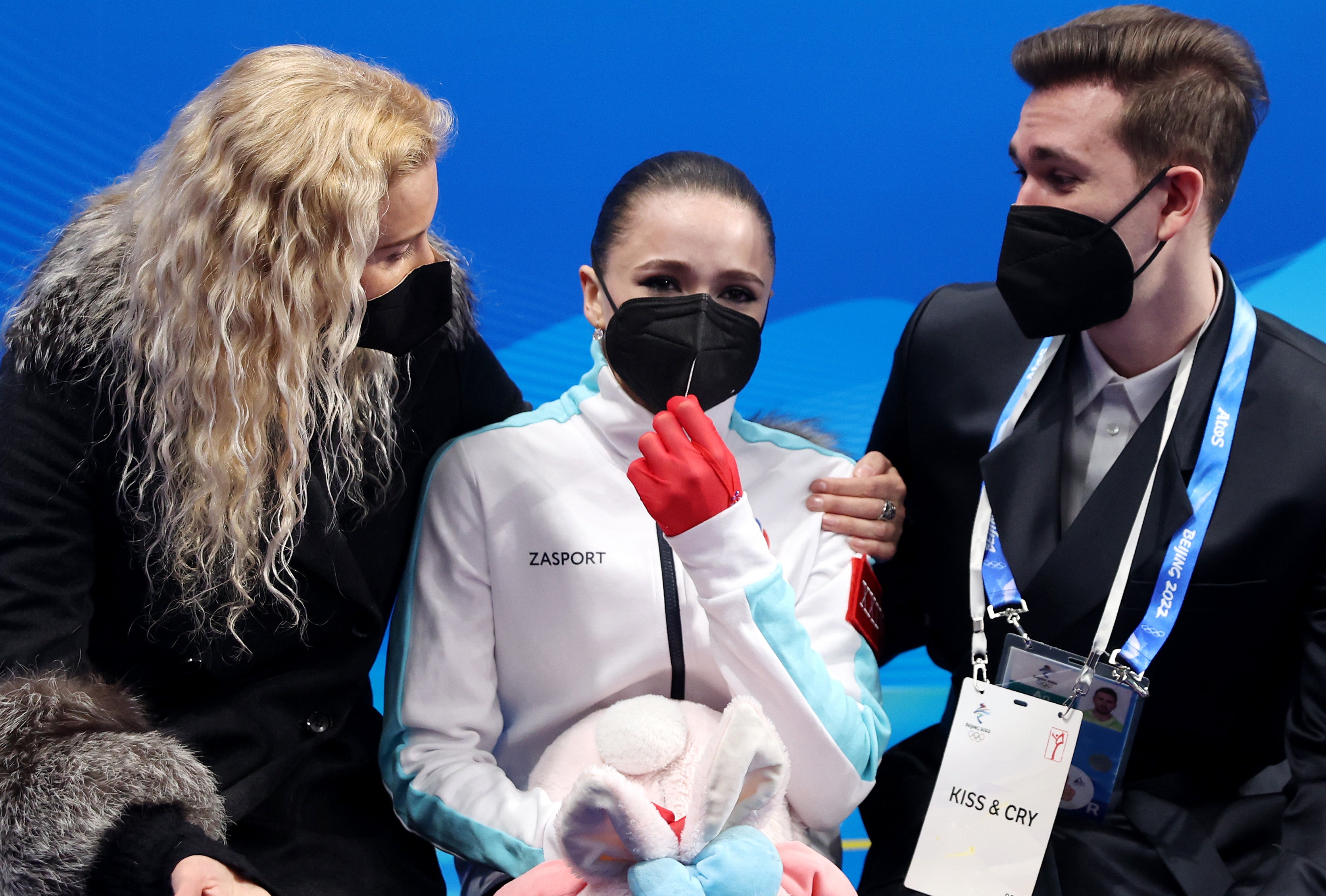
She was expected to be the star, with some viewing her as the greatest skater of all time. What she did here will never be forgotten, only for all the wrong reasons. There are still more questions than answers about how the 15-year-old was doped. Valieva will find out in the months ahead whether her skating career is already over, a perhaps guilty but wholly innocent party.
There were amazing sporting exploits at the Games too – from Lindsey Jacobellis’s redemption to Nathan Chen’s rendition of “Rocketman” – and while sport should be about deeds, not words, it was two media conferences that will be remembered.
First was 18-year-old Eileen Gu, who left China, who she competed for, for the USA, where she lives, with two golds and a silver.
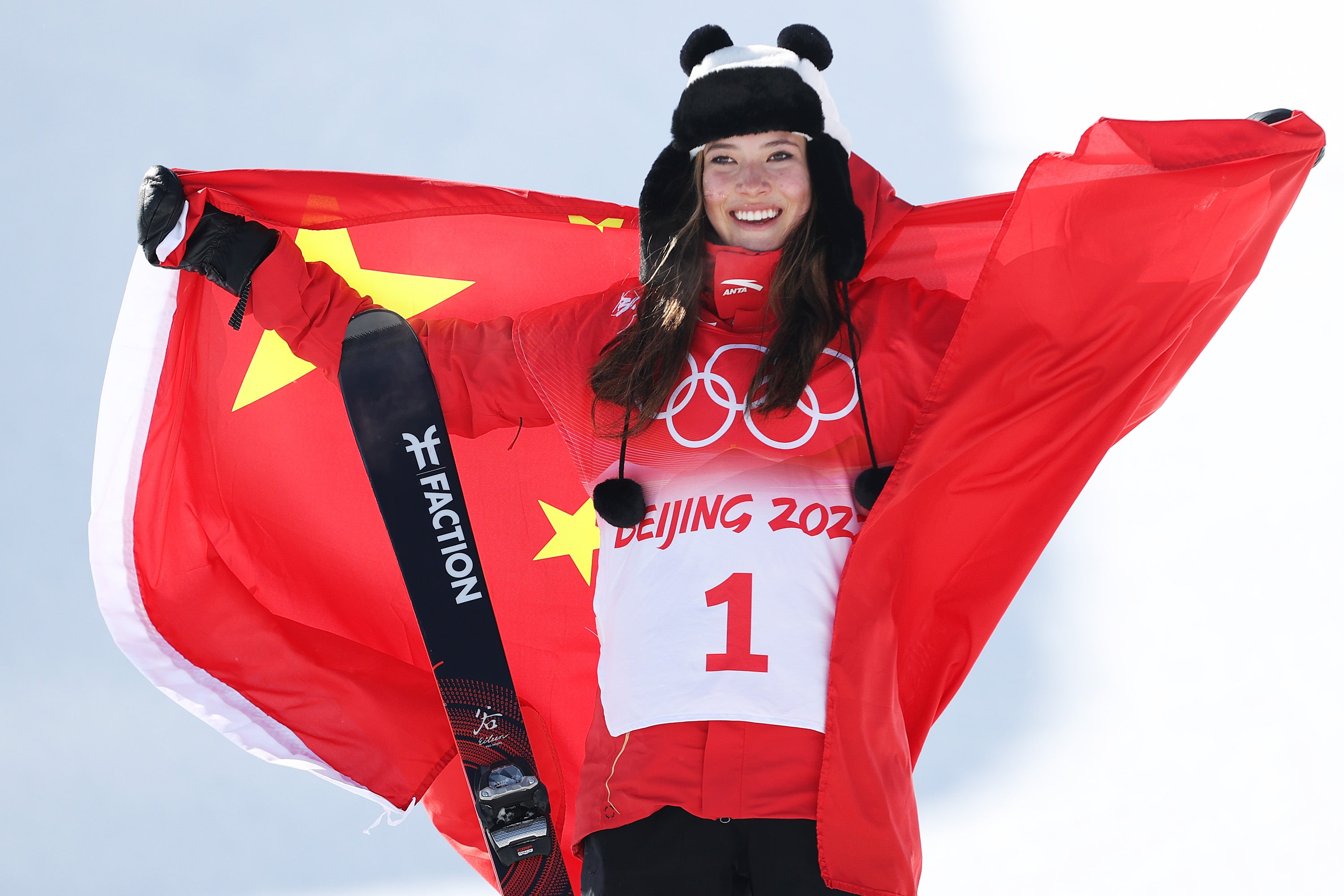
A fiercely intelligent Gu rarely makes herself available for interviews, which made her 45-minute press conference absorbing, as she switched effortlessly between languages and fixed her smile at every inquisitor. Even when asked about censored Chinese tennis star Peng Shuai, watching in the crowd, she was able to pivot back to her preferred talking points with political skill.
IOC president Thomas Bach is not known for his anger. A master in speaking lots but saying little, he can effortlessly press the flesh with Putin and Xi while still talking convincingly about world peace. But there was no doubting his fury about the Valieva story, accusing the Russian team of lacking compassion for their fallen child star.
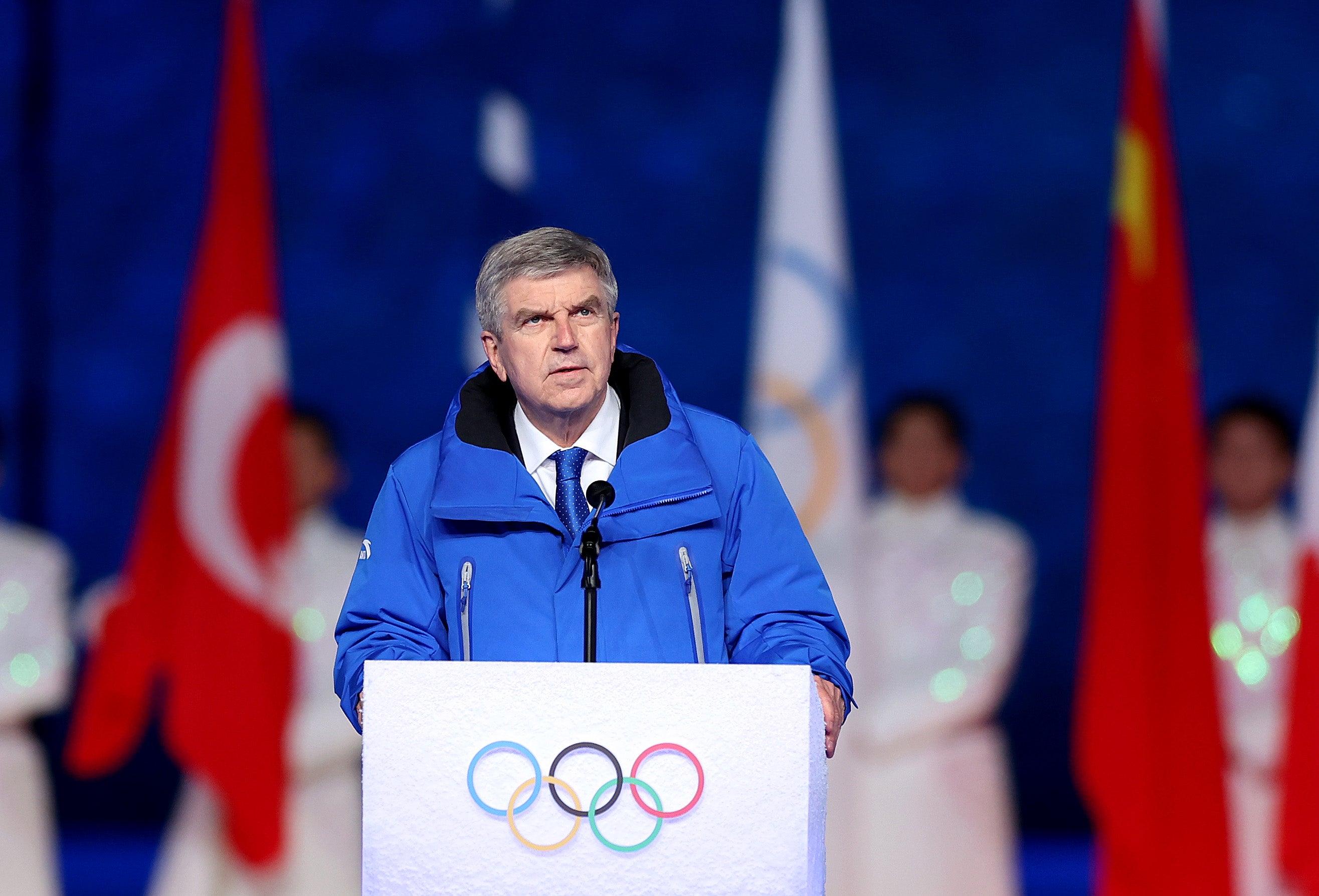
One doesn’t need to read too much between the lines to realise that Bach will be using his considerable weight to push for competition age limits at future Games. Meanwhile, British Olympic Association chief executive Andy Anson described the Valieva story and its fall out as “horrific”, admitting it was a bad look for the Olympics.
Even so, Team GB took a 13-year-old skateboarder, bronze medallist Sky Brown, to the Tokyo Games but some say it is not a fair comparison to contrast her shredding tricks to the brutal regime seemingly endured by Valieva.
“We’d support a review of age limits across sport and we think it needs to be looked at properly,” he said. “I’m not saying the answer is to impose an age limit but it does need to be reviewed properly.
“The investigation into everyone around Valieva needs to be thorough and go as deep as it possibly can because what happened there was just completely unacceptable. The absolutely vital element is to put the right safeguarding protection around athletes.”
There was also an admission from Team GB and UK Sport officials that this had been a disappointing Games. Even so, success should not just be judged on this fortnight alone. It is worth noting that since PyeongChang four years ago, when Team GB won five medals, including one gold, there have been three UK world champions in winter sports, though none made the podium in Beijing.
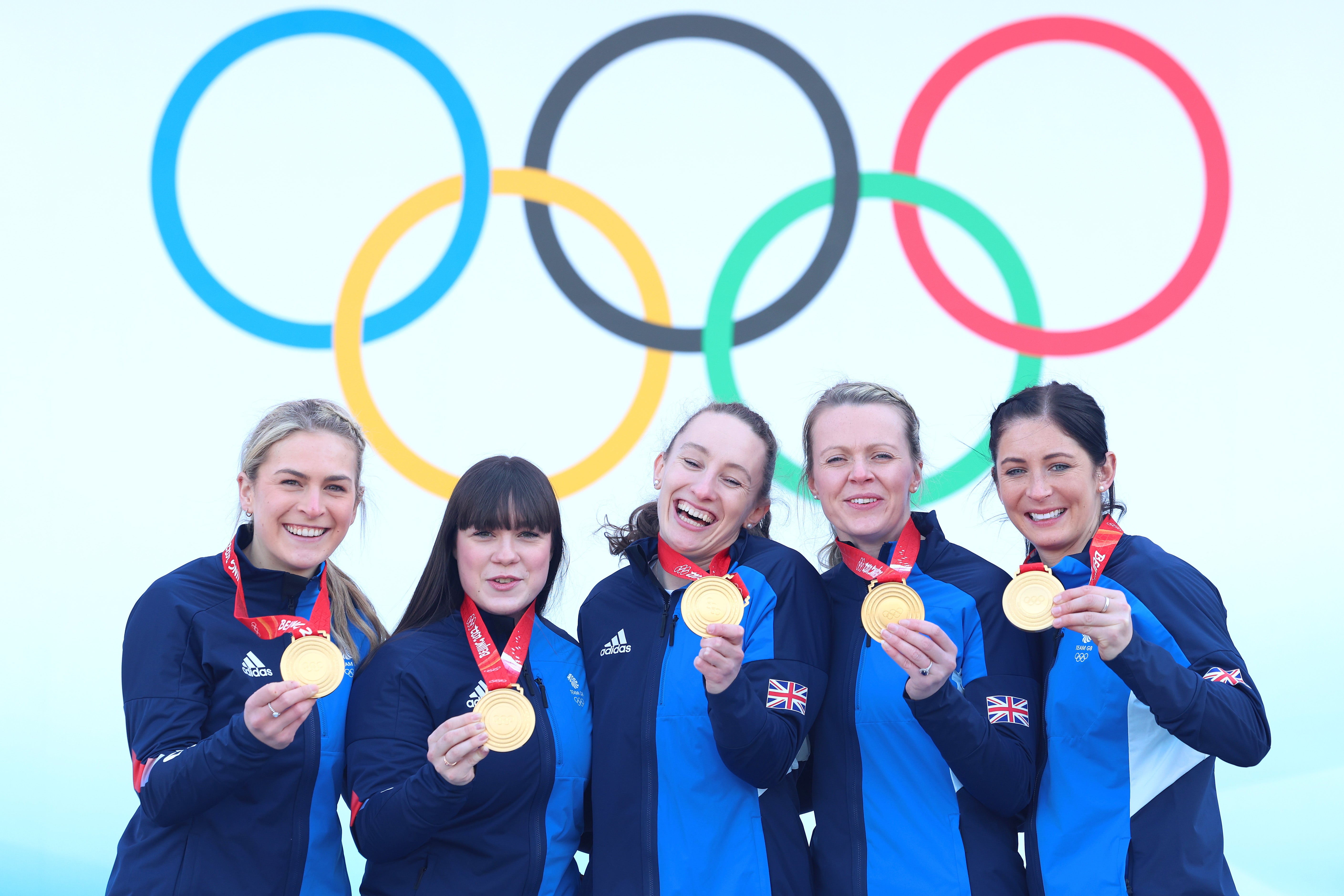
It’s also estimated around 60 per cent of the 49-strong team in Beijing had preparations compromised by the pandemic. There will likely be some tough conversations in the weeks ahead, with sports learning their future funding fate in August.
But UK Sport chief executive Sally Munday insists winter sports are firmly part of her strategy as attention switches to Milano-Cortina in four years’ time. “Don’t expect us to be decreasing our investment – we are strategically committed to winter sport,” she said.
“We feel disappointed but we recognise that no one will be more disappointed than the athletes. Emotions are still raw for them and support staff, so now is not the time to make knee-jerk decisions.
“There have been performances that offer us some optimism, it’s been a setback but it hasn’t altered our ambition to be a force in winter sports. We will come back and roar stronger for Milano-Cortina.”
Milano-Cortina? Sounds good. It might even snow.
Watch All the Olympic Winter Games Beijing 2022 live on discovery+, Eurosport and Eurosport app
Join our commenting forum
Join thought-provoking conversations, follow other Independent readers and see their replies
0Comments